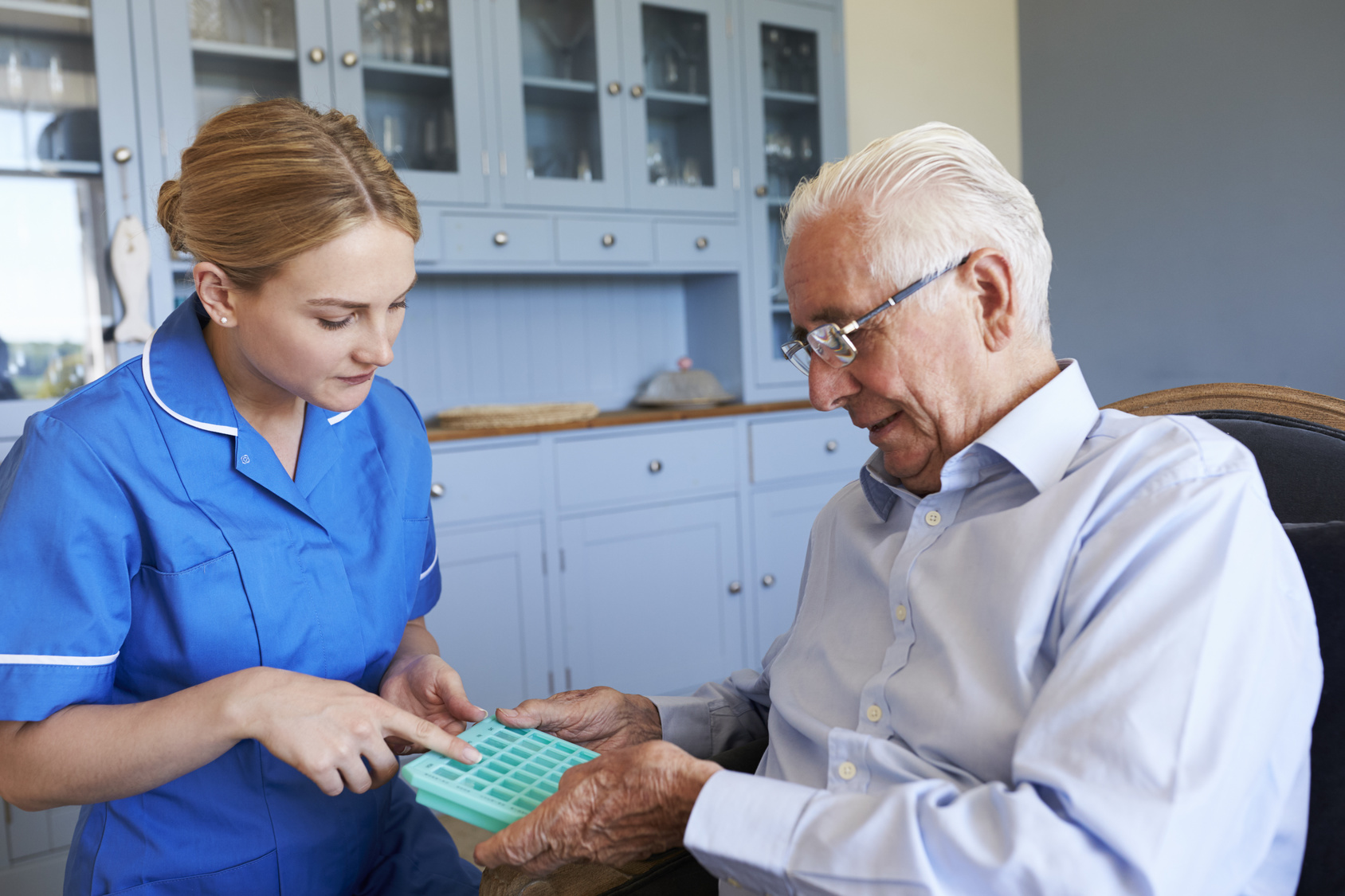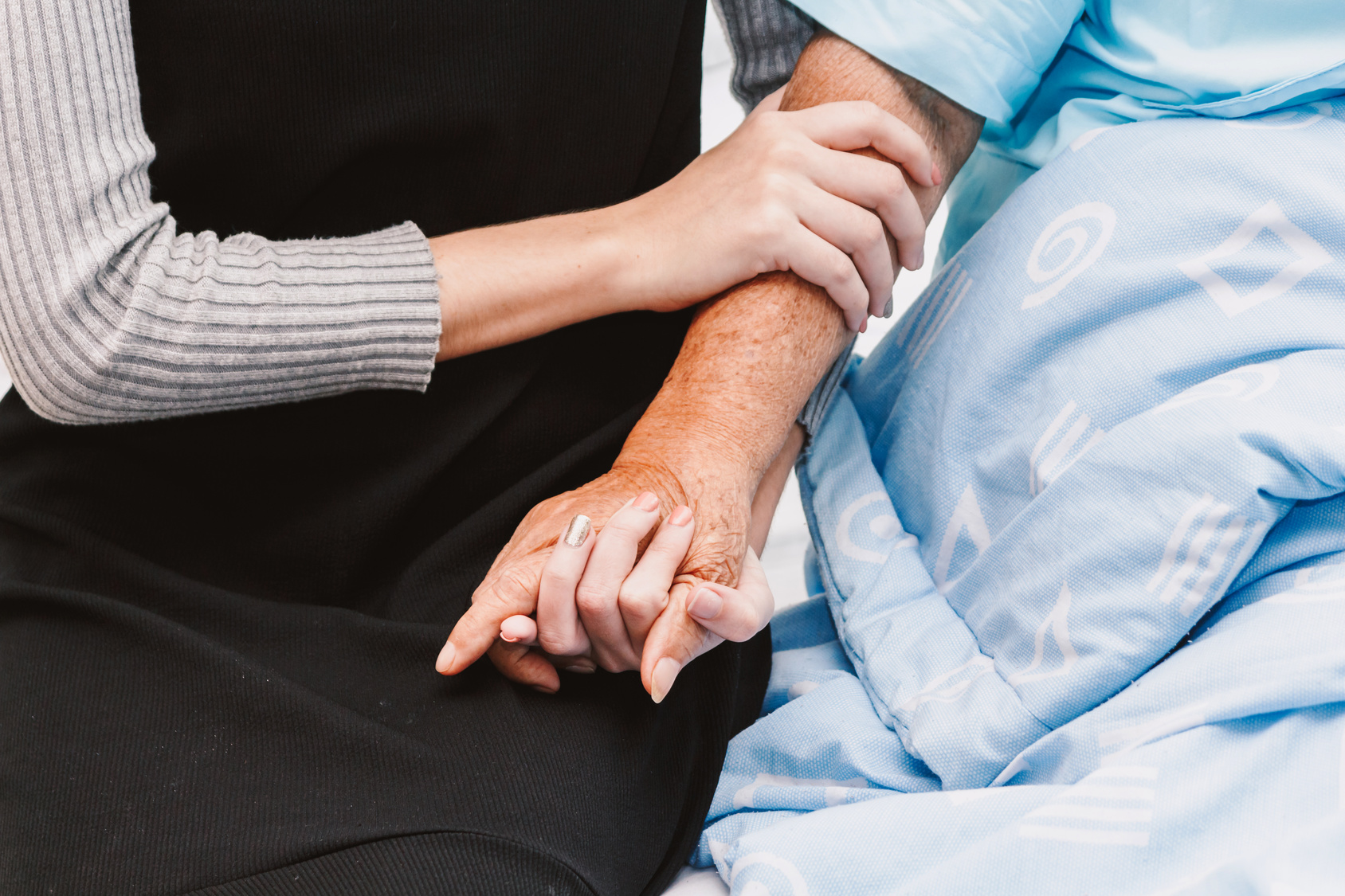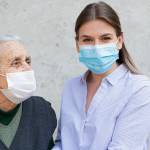While having the flu is not a fun experience for anyone, it is especially bad for seniors – the elderly have weaker immune systems than younger adults, which makes them more susceptible to complications from the virus and puts them at greater risk of hospitalization and even death.
About the Flu Virus
Influenza, or the “flu,” is a contagious viral infection that spreads from person to person through airborne particles, saliva, and skin-to-skin contact. It affects the nose, throat, and lungs and can cause severe health issues. Since seniors have limited physiological reserve, they cannot easily fight the virus and are more vulnerable to serious complications like pneumonia and bronchitis. Also, if a senior has any chronic health conditions, such as congestive heart failure, chronic lung disease, diabetes, or renal failure, those can be exacerbated by the flu.
The CDC reports that up to 70% of all flu-related hospitalizations have occurred in people who are 65 years of age or older, and about 70-85% of seasonal flu-related deaths occur within the same age group. It is, therefore, highly important to take any possible precautions to prevent the flu in elderly individuals – and treat the disease effectively if it still occurs.
How the Flu Affects the Elderly
Because of their weaker immune systems, older adults are more severely affected by the flu than younger people. The most common flu symptoms in elderly individuals include fever, chills, muscle and body aches, stuffy or runny nose, sore throat, coughing, sneezing, shortness of breath, fatigue, headache, dizziness, nausea, and diarrhea and can vary from mild to severe depending on the person. Unless properly treated, the flu can result in more serious conditions as well:
- Pneumonia – One of the most common and serious flu complications that occur in the elderly. It can develop quickly and become very severe in older adults who are not able to fight off the infection. It’s the fourth leading killer among seniors – people over 65 years of age are at a greater risk of developing pneumonia and dying from it than any other demographic group.
- Bronchitis – An inflammation of the lungs that may keep coming back even after the flu has long passed through the system.
- Sinus and ear infections – The flu virus can make the body susceptible to bacterial infections in the sinuses and ears.
- Dehydration – Many symptoms of the flu, like sweating, vomiting, and a runny nose, cause water to drain out of the body and lead to dehydration that can result in kidney problems, seizures, and other potentially fatal medical issues.
- Heart failure – It has been found that seniors who have had influenza are several times more likely to have a heart attack or stroke shortly after the disease. Like sinus and ear infections, heart issues stem from the body becoming more vulnerable to bacteria and other harmful substances while fighting with the flu virus.
The flu is particularly dangerous for seniors who have diabetes, kidney problems, liver problems, heart problems, asthma, chronic lung disease, or other medical issues that leave the organism open to the more severe effects of the flu because they assist in weakening the immune system.
How to Prevent the Flu in the Elderly
Even though older adults are at a great risk of the flu, there’s still a lot that can be done to reduce the chances that a senior will get sick:
1. Get the flu vaccine
Influenza vaccinations reduce the risk of getting the flu and protect against complications that can lead to hospitalization and death. Vaccinated people over the age of 65 were found to be 57 percent less likely to end up in the hospital, get pneumonia, or die of the flu than non-vaccinated seniors.
While the standard influenza vaccine containing the most common strains of the flu is quite effective in building the body’s defenses against the illness, there is a special flu shot for elderly people – seniors can choose between the “high dose vaccine” which contains four times the antigens of a regular flu shot and “FLUAD” that helps create a stronger immune response to the vaccination. These vaccines are specifically designed for older adults and provide them with better protection than traditional flu shots.
Since the vaccine takes about two weeks to become fully effective, the CDC recommends getting the flu shot early in the season (flu season generally starts in October and lasts until April, so the best time to get a flu shot for seniors would be during the first weeks of October).
Good to know: It is possible that seniors experience discomfort or minor health issues as a result of the vaccination. Potential – albeit rare – side effects of the flu shot in the elderly include allergic reactions, dizziness, fever, increased heart rate and breathing problems.
2. Practice healthy habits
Influenza is a highly contagious virus, spread through small droplets of fluid created from coughs, sneezes, and saliva. A person can get the virus by kissing someone who is sick, breathing the virus in, or touching items previously touched by someone with the flu.
Someone with the flu can infect another person with the virus up to a day before they start showing symptoms (symptoms may take up to four days to show after entering the body). Typically, a person is contagious for about five to seven days after showing symptoms.
Therefore, to limit the spread of the virus and minimize the risk of getting sick, seniors are advised to:
- Wash their hands with soap and warm water thoroughly and frequently (it’s a good idea to keep antibacterial gel at hand as well, in case they don’t have access to a sink to wash up – hand sanitizers effectively kill flu germs).
- Keep their living environment clean (pay special attention to doorknobs, handrails, light switches, and kitchen and bathroom counters that are breeding grounds for germs);
- Avoid touching their eyes, nose, and mouth.
- Avoid crowded places and unnecessary travel during flu season.
- Avoid close contact with people who are sick.
- Be physically active, get sufficient rest, drink plenty of fluids and eat nutritious food rich in Vitamin C.
Even though the above flu prevention tips for seniors greatly reduce the chance of catching the disease, the elderly may still come down with the flu. In such a case, quick and efficient measures need to be taken to prevent flu complications and ease the symptoms.
How to Treat the Flu in the Elderly
If a senior is feeling sick, they should:
- Seek immediate help – It’s important to visit the doctor as soon as symptoms occur. There are antiviral drugs that can help the body combat the flu, make symptoms milder, shorten the duration of the illness, and prevent serious complications, but they’re most effective when started within 48 hours of getting sick. For the elderly, getting timely medical help can mean the difference between several days of discomfort and hospitalization with severe pneumonia.
- Use a humidifier – Moist air helps soothe sore throats and hacking coughs.
- Drink extra liquids to prevent dehydration and help the body eliminate toxins and germs. Liquids also help thin out the mucous and make it easier to get it out of the system.
- Eat chicken soup – The steam opens nasal passages, the broth soothes the throat, and the nutritious soup helps the body fight the infection.
- Get plenty of rest.
- Take preventive steps to avoid spreading the flu – A senior with the flu may be contagious up to a week after symptoms appear. To protect others while they’re sick, the elderly are advised to wash their hands frequently, cough and sneeze into a tissue and immediately throw it away, and stay home until the symptoms have been gone for 24 hours.
Remember: the flu is a serious illness. If a senior gets sick, they need effective care in order to recover well and avoid complications.
Home Care to Prevent the Flu
At Assisting Hands Home Care, we provide quality home health care for seniors with the flu – as well as complete home care services for the elderly who’re struggling with household chores and keeping their home germ-free.
Our experienced, compassionate caregivers will ensure proper treatment and take all the necessary precautions to prevent flu complications in the elderly, while providing the person with friendly companionship and emotional support. They can also help reduce the chance of a senior getting sick by ensuring good personal hygiene, maintaining a clean and healthy living environment, preparing nutritious, healthy meals, and running errands for the seniors so they can stay away from crowds and sick people.
We can provide as much – or as little – home care assistance as a senior needs to continue to live independently and safely in the comfort of their own home, even during flu season.




